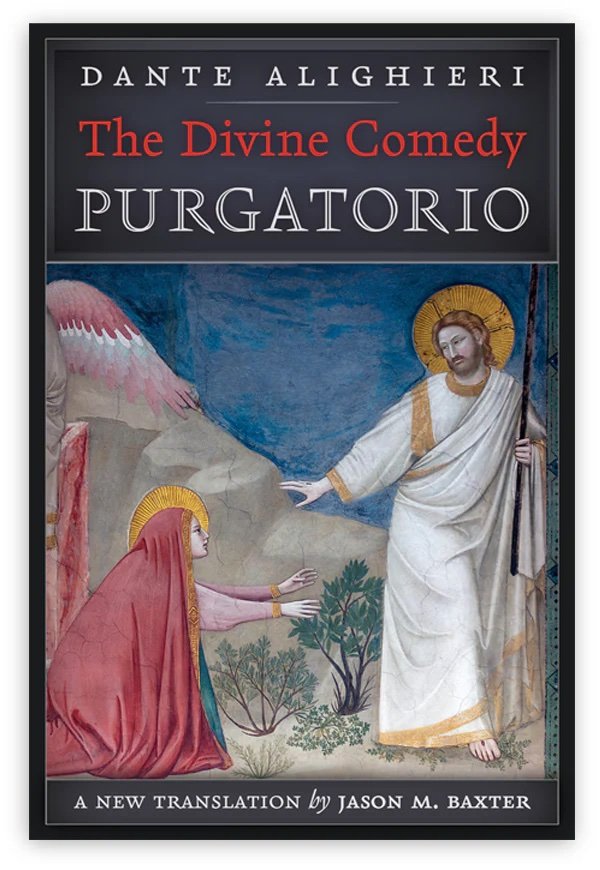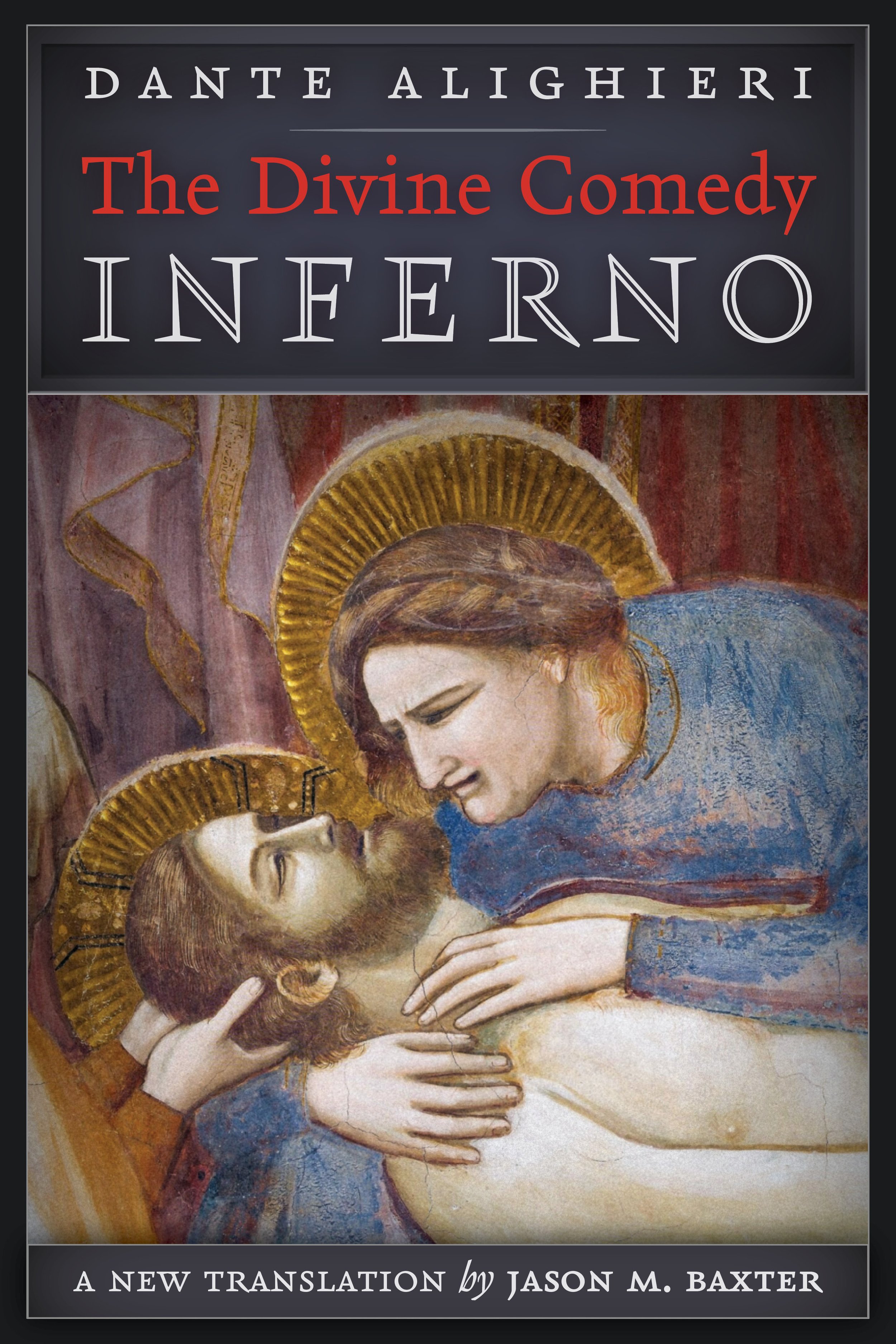Signed Copy of Purgatorio, translated and introduced by Jason M. Baxter
After brilliantly capturing the sense of loss and linguistic violence of the Inferno, Jason Baxter now turns to communicating the fugue-like magic of the Purgatorio. On the one hand, his translation is sensitive to the Purgatorio’s new, soaring lyrical style that Dante so admired in his classical authors; on the other, it has an ear for the humble, the unexpectedly lowly—for experiences and feelings “rooted” in the body, like those found in the fervent, devotional art of the late Middle Ages. In this way, Baxter gives modern readers not just an accurate translation of Dante’s Italian but an immersive experience into the feelings, intimations, and realizations Dante’s original readers must have had as they made their way through the unmatched moral evocations and inner tutelage of this second panel of The Divine Comedy.
After brilliantly capturing the sense of loss and linguistic violence of the Inferno, Jason Baxter now turns to communicating the fugue-like magic of the Purgatorio. On the one hand, his translation is sensitive to the Purgatorio’s new, soaring lyrical style that Dante so admired in his classical authors; on the other, it has an ear for the humble, the unexpectedly lowly—for experiences and feelings “rooted” in the body, like those found in the fervent, devotional art of the late Middle Ages. In this way, Baxter gives modern readers not just an accurate translation of Dante’s Italian but an immersive experience into the feelings, intimations, and realizations Dante’s original readers must have had as they made their way through the unmatched moral evocations and inner tutelage of this second panel of The Divine Comedy.
After brilliantly capturing the sense of loss and linguistic violence of the Inferno, Jason Baxter now turns to communicating the fugue-like magic of the Purgatorio. On the one hand, his translation is sensitive to the Purgatorio’s new, soaring lyrical style that Dante so admired in his classical authors; on the other, it has an ear for the humble, the unexpectedly lowly—for experiences and feelings “rooted” in the body, like those found in the fervent, devotional art of the late Middle Ages. In this way, Baxter gives modern readers not just an accurate translation of Dante’s Italian but an immersive experience into the feelings, intimations, and realizations Dante’s original readers must have had as they made their way through the unmatched moral evocations and inner tutelage of this second panel of The Divine Comedy.

